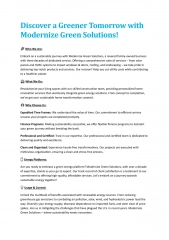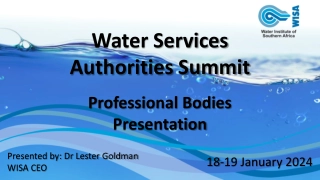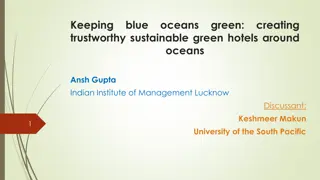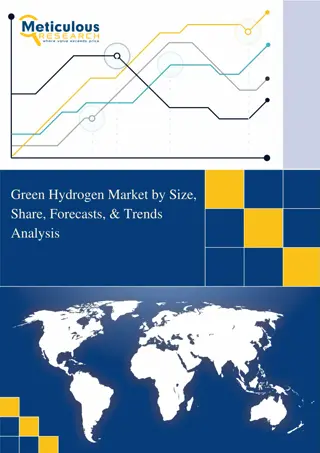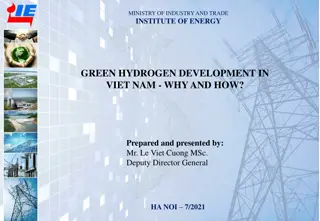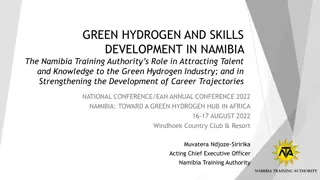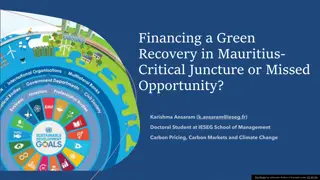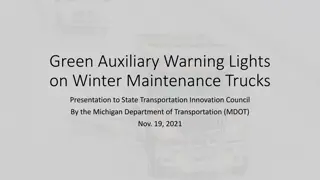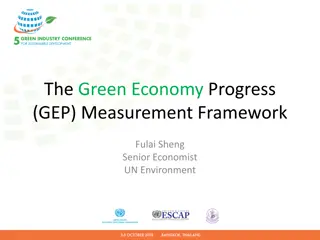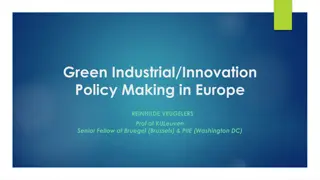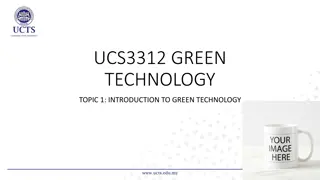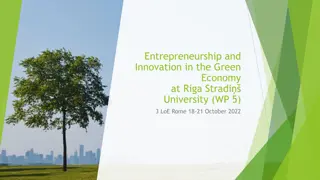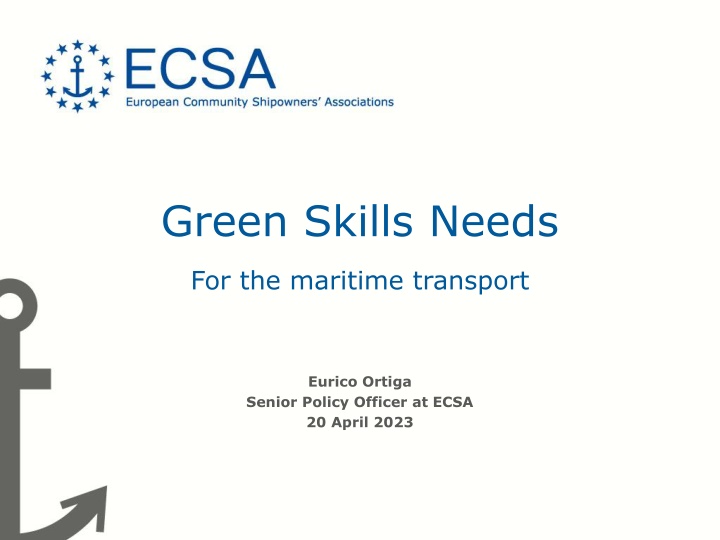
Skills and Training Needs in Green Maritime Transport
Skills and training requirements in the maritime industry are evolving towards a greener approach to tackle environmental challenges. The European Community Shipowners' Associations (ECSA) emphasizes the need for green skills, which involve decision-making abilities to prioritize environmental concerns. These skills aim to reduce environmental impacts and ensure compliance with regulations. Tasks in green maritime transport include emissions measurement, operating eco-friendly machinery, and fuel-handling. Seafarers need to upskill and reskill for sustainable vessel operation, reflecting the industry's transition towards decarbonization.
Uploaded on | 0 Views
Download Presentation

Please find below an Image/Link to download the presentation.
The content on the website is provided AS IS for your information and personal use only. It may not be sold, licensed, or shared on other websites without obtaining consent from the author. If you encounter any issues during the download, it is possible that the publisher has removed the file from their server.
You are allowed to download the files provided on this website for personal or commercial use, subject to the condition that they are used lawfully. All files are the property of their respective owners.
The content on the website is provided AS IS for your information and personal use only. It may not be sold, licensed, or shared on other websites without obtaining consent from the author.
E N D
Presentation Transcript
Green Skills Needs For the maritime transport Eurico Ortiga Senior Policy Officer at ECSA 20 April 2023
About ECSA Representing 21 national shipowners associations of the EU countries and Norway Founded in 1965 Promotes and protects the interests of European shipping Brussels Secretariat 10 employees EU social partner for maritime transport
Green Skills definition Green skills are: o Capacity when taking decisions to include environmental concerns, alongside others such performance and safety, in the choice of processes and technologies; o Much more based on awareness than on substantial knowledge; Green skills to: o Reduce environmental impacts; o comply with legislation regulating maritime and related environmental pollution issues; 3
Green Skills definition Green skills because : o Inadequate understanding of specific needs to protect the environment; o Insufficient needed to use tools and follow procedures ensuring appropriate protection properly. knowledge of competencies environment 4
Green tasks Measurement, calculation and documentation of emissions, EU and international legislation; Operation of complex hybrid and zero-emission pieces of machinery; Environmental economics, management systems; Logistics and optimisation methods to achieve high vessel utilisation; Advanced routeing, considering factors such as wind, current, and waves; How to handle a variety of fuels (harmful content, explosion etc.). performance 5
Preparing seafarers Need to upskill and reskill the necessary knowledge, skills, and competencies for operating a vessel in an environmentally friendly and sustainable way; Need for an extension of the set of core skills in order to limit pollution and emissions caused by the routine operations of ships or in the event of an emergency. environmentally-damaging The requires retaining and ensuring the growth of the maritime workforce, but the maritime sector at large will need updated training requirements, upskilling and reskilling to meet the EU earmarking of the EU ETS revenues will be vital to address this need successfully. transition towards decarbonisation not only climate targets. The 6
Measures - Awareness Developing a low-carbon economy depends more on improving existing skills rather than specialised green skills; Leading causes and effects of processes taking place in sea transport and influencing the environment should be clearly explained both to shipboard as well as to shore-based personnel; EU-wide programmes of measures aiming to increase environmental awareness among seafarers and shore based staff employed with should be considered; the maritime industry 7
Measures Courses SkillSea educational packages; Courses procedures and proper use of tools to ensure appropriate environmental protection should be developed and promoted, beyond STCW; aiming to upskill seafarers in Courses aiming to upskill seafarers in handling various fuels (for example, ammonia) and batteries should be developed. hydrogen concerning and risks 8
Thank You. Eurico Ortiga 20 April 2023 eurico.ortiga@ecsa.eu www.ecsa.eu

